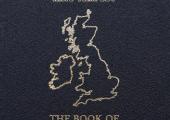CD: Kano - Hoodies All Summer

A career best for an MC who's been at the heart of grime since its inception
Of all grime's original generation, Kano has a strong claim to being the greatest rhyme-constructor in the old school hip hop sense of dense rhymes packed with multiple meanings. Add movie star looks and a penchant for fur coats in photoshoots and he was most young grime fans' tip for following Dizzee Rascal into the big league.









